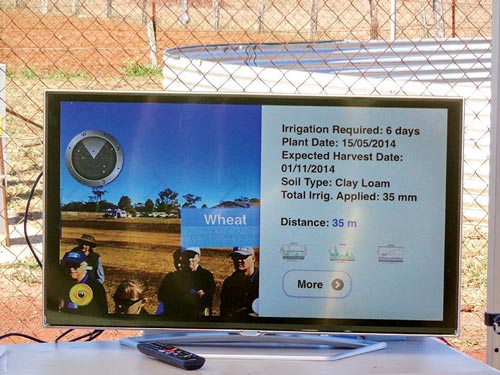Asia
As a fast growing region with increasing challenges for smallholder farmers, Asia is a key target region for CIMMYT. CIMMYT’s work stretches from Central Asia to southern China and incorporates system-wide approaches to improve wheat and maize productivity and deliver quality seed to areas with high rates of child malnutrition. Activities involve national and regional local organizations to facilitate greater adoption of new technologies by farmers and benefit from close partnerships with farmer associations and agricultural extension agents.
CIMMYT scientist examines socio-economic determinants of yield variability in maize
 Nutrition, health and food security
Nutrition, health and food security
M.L. Jat, senior cropping system agronomist in the Global Conservation Agriculture Program at CIMMYT, in collaboration with Hirak Banerjee, Rupak Goswami, Somsubhra Chakraborty, Sudarshan Duttac, Kaushik Majumdar , T. Satyanarayana and Shamie Zingore, recently published a study examining the socio-economic determinants of yield gap in maize.
CCAFS management team visits India: assessing and widening climate smart villages
 Capacity development
Capacity development
The CGIAR Research Program on Climate Change, Agriculture and Food Security (CCAFS) management team lead by Bruce Campbell, Director, CCAFS, visited CIMMYT-CCAFS action sites in India during 23-28 August.
AIP stakeholders share experiences with multi-crop bed planter in Pakistan
 Capacity development
Capacity development
CIMMYT, in collaboration with Wheat Research Institute Sindh (WRIS) and Pakistan Agriculture Research Council (PARC) supported by USAID, initiated pilot testing of a multi-crop bed planter for planting cotton and wheat in a cotton-wheat cropping system in Sakrand, Pakistan under the Agricultural Innovation Program (AIP) for Pakistan.
Kenyan government officials visit MLN screening facility
 Capacity development
Capacity development
Maize lethal necrosis (MLN) disease, which can cause up to 100 percent yield loss on farmers’ fields, is threatening this source of food and livelihoods for many in the country. Because of this, 40 county officials, including County Executive Committee (CEC) officials who are responsible for agriculture in Kenya’s devolved government structure, visited the CIMMYT MLN Screening Facility in Naivasha, Kenya on 5 August.
Synthetic wheat in China continues to flourish due to grassy species
 Nutrition, health and food security
Nutrition, health and food security
New USAID lead for climate-resilient cereals portfolio visits Heat Stress Tolerant Maize for Asia
 Climate adaptation and mitigation
Climate adaptation and mitigation
Recent activities and accomplishments of the Agricultural Innovation Project (AIP) for Pakistan
 Capacity development
Capacity development
The Agricultural Innovation Project (AIP) for Pakistan, led by CIMMYT and funded by USAID, has accomplished a great deal since its inception in March 2013. Among this year’s most notable AIP achievements by partner institutions were numerous training sessions and workshops, important vaccine developments, progress in baseline surveys and advances in seed improvement and distribution.
Wheat is not a “rich man’s crop”
 Nutrition, health and food security
Nutrition, health and food security
Wheat productivity must first increase in developing countries, where yield gaps continue to be unacceptably high.
Heat stress-resilient maize hybrids for Asian farmers
 Climate adaptation and mitigation
Climate adaptation and mitigation
The “2nd Annual Progress Review and Planning Meeting for the HTMA Project” was held 22-23 July at UAS, Raichur in Karnataka, India. To take advantage of the presence of renowned scientists at this newly established agricultural university, the inaugural session of the meeting was organized as a special seminar on “Global initiatives on climate resilient crops.”
Precision farming down under at the National Centre for Engineering in Agriculture
 Capacity development
Capacity development
CIMMYT scientists discuss the complementary nature of the two organizations in the areas of precision agriculture, field monitoring, smart technologies and remote sensing.
Gupta Is new Director General of Borlaug Institute for South Asia
 Capacity development
Capacity development
Hari S. Gupta was selected as the second Director General (DG) of the Borlaug Institute for South Asia (BISA) in India and assumed his new position on August 7th.
Why wheat matters
 Climate adaptation and mitigation
Climate adaptation and mitigation
The history of wheat is the history of civilization.
